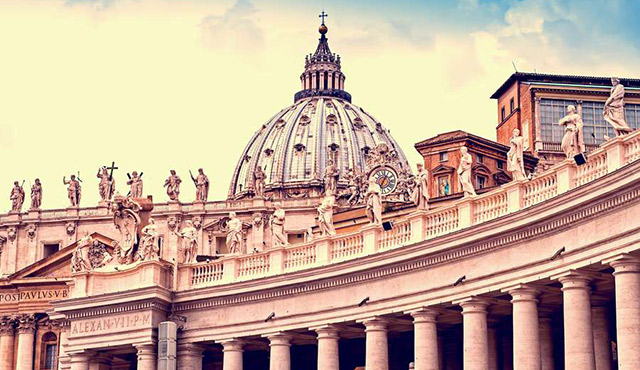Vatican City, May 2, 2017 / 11:33 am (CNA/EWTN News) – Traditional solutions to the problem of poverty typically take a top-down welfare approach, focused on fulfilling a person’s most basic needs, such as food and shelter – but which don’t address the issue of societal participation and inclusion.
The plenary session of the Pontifical Academy of Social Sciences, held at the Vatican April 28-May 2, aimed to find solutions which promote inclusion for the otherwise marginalized, especially the poorest in society.
“All of the 20th century, and the end of the 19th century, the response to the poorest of the poor was to provide them with absolute basic necessities, such as the workhouse, food, clothes,” said Margaret Archer, president of the Academy of Social Sciences.
“This is not enabling them to participate in society; at best, only to survive. Life is about more than just simple survival. Welfare is a top-down solution. So this was the motive for the conference on participation,” she said.
Archer, who spoke to journalists at a press conference May 2, said the question of how to go about helping “the poorest of the poor” is a “major challenge” for social theory.
“When you have a population of extreme poverty, what do you do? You give them welfare. The Pope doesn’t want the simplistic solution of just giving them money, because it doesn’t last forever anyway,” she said.
The academy’s plenary session, titled “Towards a participatory society: new ways for social and cultural integration,” discussed the wide-ranging topic of societal exclusion, which can manifest in different ways in different parts of the world.
In addition to the poor and economically disadvantaged, it also can include migrants and refugees, religious minorities, and those with disabilities.
In some parts of the world, an initial exclusion can end up leading to more and worsening issues, said Paulus Zulu, a professor at the University of Natal. In Africa, for example, he said there is “a crisis of representative democracy.”
This is one of the major causes of a lack of social participation, he explained. And when this happens to too great an extent, it frequently leads to excluded populations seeking inclusion or existence elsewhere, one of the reasons behind migration, especially economic migration.
In their meetings, the group discussed alternative ways to bring about “global social change in the direction of inclusivity and fraternity,” Archer said, one solution being through Church support of non-governmental organizations.
Pope Francis sent a message to the academy on April 28 encouraging them in their plenary session and urging them, according to the Church’s social doctrine, to find “ways to apply in practice fraternity as the governing principle of the economic order.”
“Fraternity allows people who are equal in their essence, dignity, freedom, and their fundamental rights to participate differently in the common good according to their capacity, their plan of life, their vocation, their work, or their charism of service,” he said.
“From the beginning of my pontificate, I wanted to point out that ‘in our brother lies the permanent extension of the Incarnation for each of us’ (Evangelii Gaudium, 179). In fact, the protocol we are judged by is based on brotherhood: ‘All you did to one of these least brothers of mine, you did to me’ (Mt. 25:40).”
“Even though we live in a world where wealth abounds, many people are still victims of poverty and social exclusion,” Francis continued.
“The Gospel Proposal: ‘Seek first the Kingdom of God and its justice, and all these things will be added to you’ (Mt 6:33) has been and is still a new energy in history that tends to arouse fraternity, freedom, justice, peace and dignity for all.”
Concluding, he quoted from Benedict XVI’s encyclical, Caritas in Veritate, saying: “To the extent that the Lord will succeed in reigning in us and among us, we will be able to participate in divine life and we will be one to the other ‘instruments of his grace, to pour out the mercy of God and to weave nets of charity and fraternity.’”

